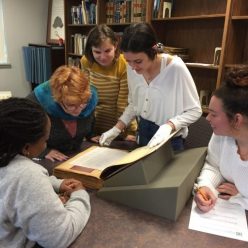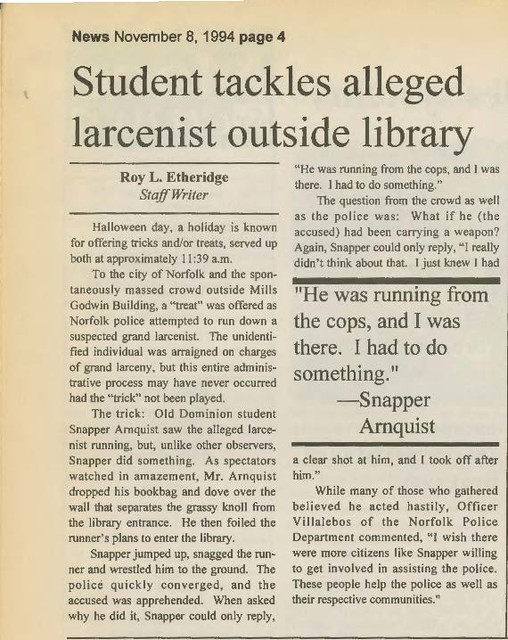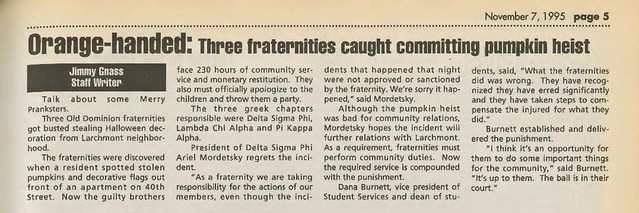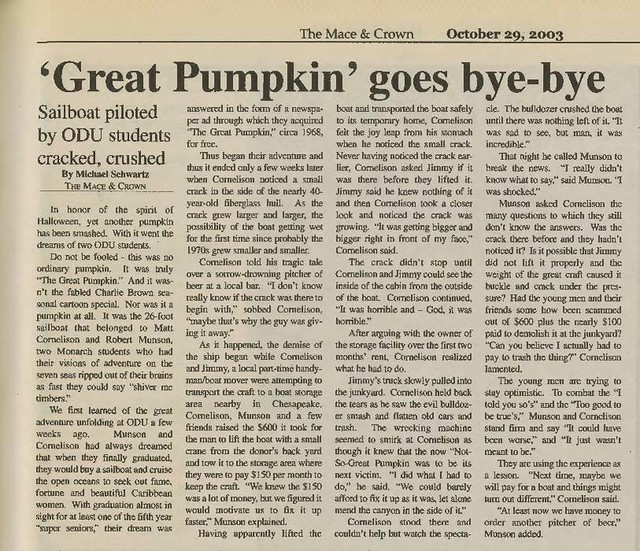by Mel Frizzell, Special Collections Assistant
Perusing through October and November issues of the Mace and Crown, I found the usual stories about Halloween parties and dances, reviews of horror movies released around Halloween, articles highlighting the “in” Halloween costumes for the year, promotions for the Rocky Horror Picture Show, an occasional article on the supernatural, and a few articles about the annual ODU pumpkin drop. Among those were a trio of truly suspenseful Halloween headlines about harrowing happenings at ODU.
On Halloween day in 1994, an ODU student tackled “an alleged larcenist” outside the ODU Library. Apparently, Norfolk police were attempting to apprehend the larcenist outside of the Mills Godwin Building when the suspect fled. An ODU student named Snapper Arnquist, who was sitting in front of the library when things went down, saw the suspect running. Arnquist quickly threw down his bookbag, dived over a small outdoor wall, and wrestled the suspect to the ground. The police were then able to arrest the suspect.
In 1995, three ODU fraternities where caught – apparently “orange-handed” – “committing a pumpkin heist.” Members of Delta Sigma Phi, Lambda Chi Alpha, and Pi Kappa Alpha were caught stealing pumpkins and Halloween decorations from the Larchmont neighborhood adjoining campus. As punishment, the guilty members had to do 230 hours of community service, pay for the stolen items, apologize to the children in the neighborhood, and most punishing of all — throw them a party.
The last story is less of a crime and more about crushed dreams. The October 29, 2003, article titled “’Great Pumpkin’ goes bye-bye” relates the story of two ODU students with hopes of adventures on a 26-foot sailboat called “The Great Pumpkin.” The students, Matt Cornelison and Robert Munson, acquired the 40-year-old boat for free through a newspaper ad. They had the boat transported from the previous owner’s back yard to a boat storage facility where they could fix it up. A few weeks later, they discovered a small crack in the hull. As time went on, the crack got larger and larger until they could see into the cabin from outside the boat. Unable to afford to fix boat, Cornelison did what he “had to do.” He had the boat demolished with a bulldozer “until there was nothing left of it.” Such is the tragic demise of “The Great Pumpkin” and the sailing dreams of two ODU students.






